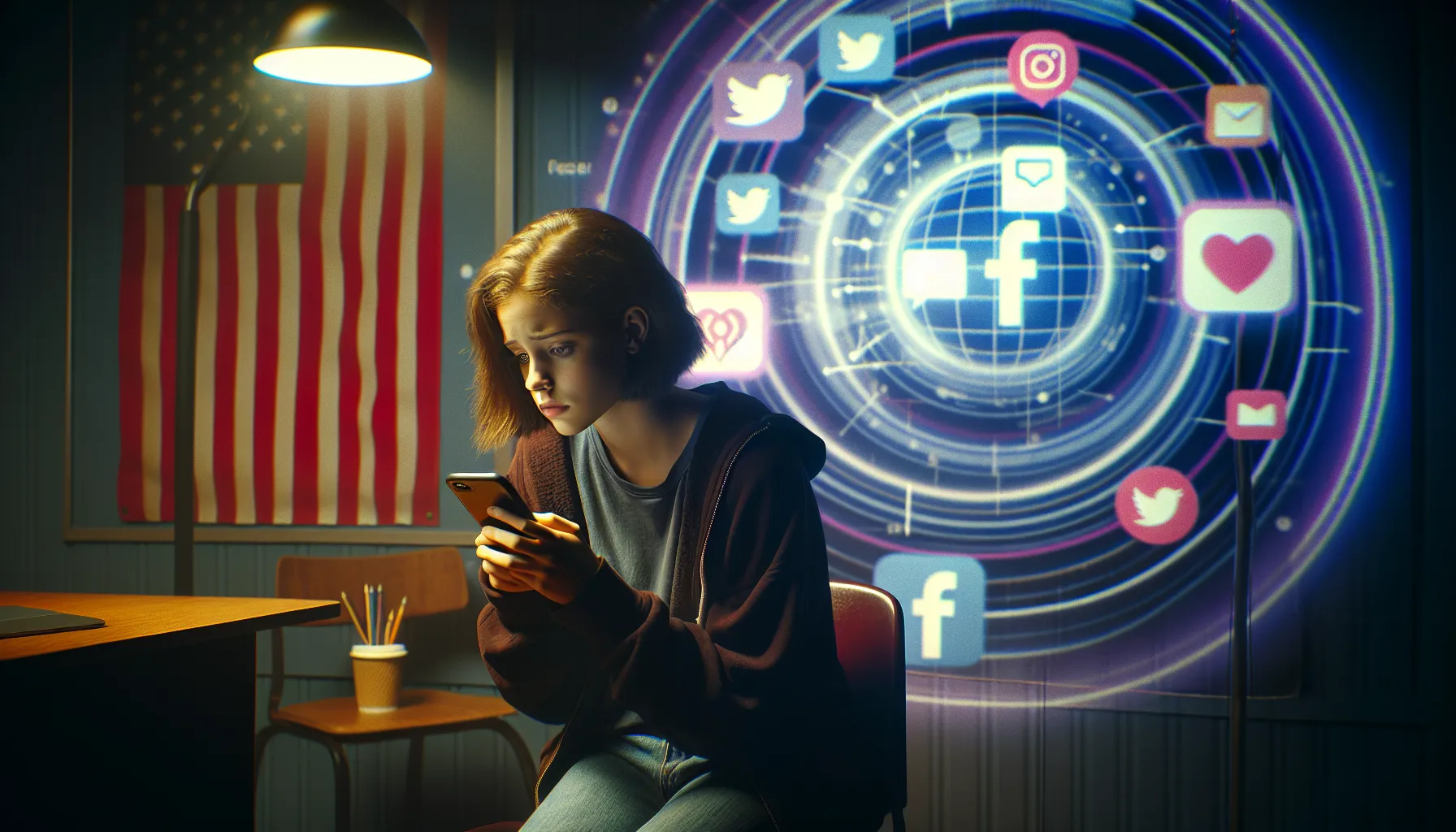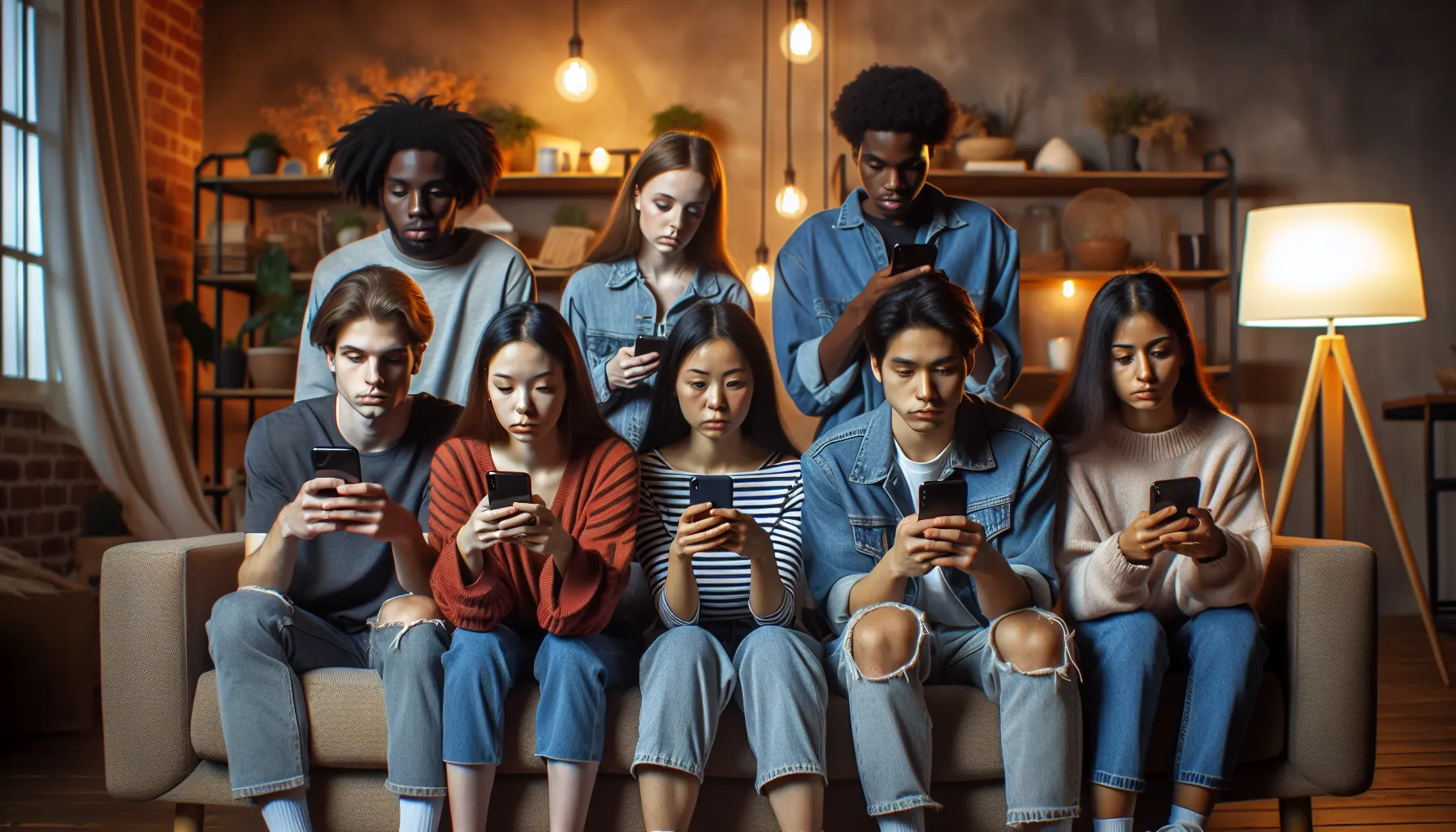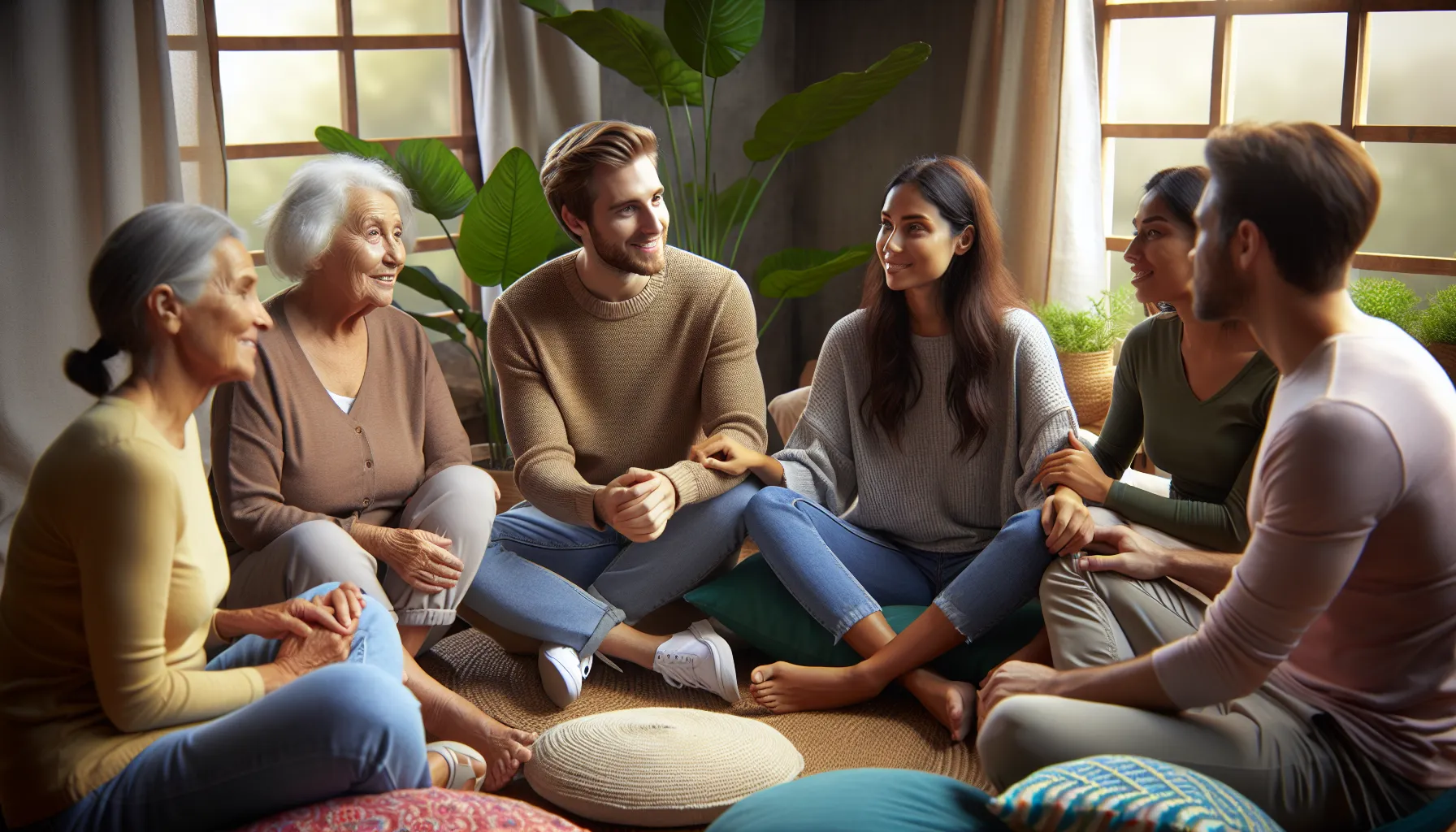Key Takeaways
- Social media’s excessive use is linked to mental health concerns like anxiety, depression, and low self-esteem, often caused by social comparison and FOMO (Fear of Missing Out).
- Teens and young adults are particularly vulnerable to depression influenced by social media due to developmental factors and peer validation needs, while adults and seniors face unique risks tied to professional or social expectations.
- Prolonged exposure to curated content and cyberbullying are key contributors to emotional distress, highlighting the need for mindful social media habits.
- Despite its drawbacks, social media also fosters supportive communities, raises awareness about mental health, and provides access to valuable resources.
- Practical strategies such as setting boundaries, practicing mindful usage, and curating positive content can help mitigate social media’s negative impact on mental well-being.
Scrolling through social media feels like second nature these days, doesn’t it? From catching up with friends to diving into the latest trends, it’s become a huge part of how we connect and unwind. But every now and then, I’ve wondered—does all this scrolling come with a cost?
I’ve noticed how easy it is to compare my life to the picture-perfect highlights I see online. It’s hard not to feel a little down sometimes, especially when it seems like everyone else has it all figured out. So, could social media actually be fueling feelings of loneliness or even depression? It’s a question worth exploring, and I think it’s time we take a closer look.
Understanding The Relationship Between Social Media And Mental Health
Social media has transformed how people communicate and access information. While it offers benefits, its impact on mental health raises growing concerns.
The Rise Of Social Media Usage
Over 4.8 billion people worldwide actively use social media in 2023, with platforms like Instagram, TikTok, and Facebook leading in popularity. Many users spend an average of 2-3 hours daily scrolling through content. Increased accessibility via smartphones has amplified this usage, making social media a constant presence in daily life. This surge has intensified its influence on mental well-being.
Common Mental Health Concerns Linked To Social Media
Studies highlight several mental health issues associated with social media. Excessive use often correlates with anxiety, depression, and low self-esteem. For instance, curated posts can lead users to compare their lives to idealized portrayals online, fostering feelings of inadequacy. Cyberbullying has also emerged as a significant concern, with victims reporting higher levels of stress and sadness. Additionally, constant notifications and fear of missing out (FOMO) disrupt sleep patterns, contributing to emotional instability.
Exploring The Connection: Does Social Media Cause Depression?

Social media’s impact on mental health has raised growing concerns. Exploring scientific research and psychological factors sheds light on its role in depression.
Scientific Studies And Research Findings
Research provides insight into how social media may affect mental health. A 2022 study published in JAMA Psychiatry found that adolescents using social media for over 3 hours daily were at higher risk for experiencing depression. Another 2019 report in The Lancet revealed that frequent social media use correlates with low emotional well-being, particularly in teens aged 14-17. While not definitive, these studies suggest prolonged usage could intensify depressive symptoms.
Psychological And Emotional Factors
Social media influences psychological and emotional health. For instance, negative comments can lead to self-doubt, while exposure to cyberbullying creates emotional distress. Constant engagement with content also disrupts self-reflection and increases stress levels. Emotional exhaustion from social media overuse may result in withdrawal, fatigue, or feelings of worthlessness, compounding depressive tendencies.
The Role Of Social Comparison And FOMO (Fear Of Missing Out)
Excessive social media usage encourages unhealthy comparisons. Users often compare their lives to curated online profiles, leading to feelings of inadequacy or envy. FOMO, amplified by real-time posts, can heighten anxiety and the fear of being excluded. For example, missing out on events or lifestyles showcased by others may diminish self-esteem and spark depressive symptoms.
Age Groups And Vulnerability To Social Media-Linked Depression

Different age groups experience varying levels of vulnerability to depression influenced by social media. Factors like developmental stage, social awareness, and life experiences contribute to these differences.
Teens And Young Adults
Teens and young adults appear most vulnerable to social media’s impact on mental health. A 2022 Pew Research Center report found that 95% of teens in the U.S. use social media, with 35% describing themselves as “almost constantly” online. This high usage often coincides with critical developmental stages where peer validation and identity formation are essential.
Platforms showcasing curated images and posts can feed into feelings of inadequacy, particularly as teens compare themselves to others. For example, seeing peers’ seemingly perfect lives can trigger low self-esteem and reinforce depressive thoughts. Cyberbullying remains a significant concern in this demographic, with incidents more likely to affect teen girls, according to CDC data. Combined with disrupted sleep patterns linked to late-night scrolling, these factors create heightened susceptibility to depression.
Adults And The Elderly
Adults may experience different social media challenges, often tied to career expectations or familial relationships. Excessive time spent on platforms like LinkedIn or Instagram sometimes results in heightened stress, particularly through professional or lifestyle comparisons. Research from the Clinical Psychological Science journal suggests that adults who monitor their online presence obsessively report increases in depressive symptoms.
For elderly individuals, social media offers both benefits like reducing loneliness and risks like exposure to age discrimination or isolation when online interactions replace face-to-face connections. A 2021 study led by Oxford researchers noted that seniors who rely heavily on social platforms may experience a decline in emotional well-being if these interactions lack depth or authenticity.
Positive Aspects Of Social Media On Mental Health

Social media isn’t solely a source of concerns—it also offers ways to benefit mental well-being. These platforms create opportunities to connect, share, and learn in meaningful ways.
Building Communities And Support Networks
Social media connects individuals with similar experiences or challenges, creating supportive communities. Numerous platforms host groups for people facing specific mental health conditions, such as anxiety or depression. These spaces offer encouragement, advice, and reassurance. For example, online forums or Facebook groups allow people to share personal stories and feel less alone. Additionally, influencers or advocates often use these platforms to provide relatable content, fostering a sense of belonging.
Spreading Awareness About Mental Health
Social media helps raise awareness about mental health by educating large audiences. Many organizations, like NAMI or Mental Health America, use these platforms to highlight resources and break stigmas. Campaigns like #WorldMentalHealthDay enable users to engage and promote dialogues about mental health challenges. For instance, Instagram or TikTok posts often include coping strategies or signs to watch for, potentially reaching those unsure where to seek help.
Strategies To Manage Social Media Usage And Mental Health
Balancing social media use with mental health is achievable through practical strategies. By implementing intentional habits, I can reduce its negative impact on my well-being.
Setting Healthy Boundaries
I create defined limits on my social media use to prevent overexposure. Allocating specific time blocks for browsing daily, such as 30 minutes in the evening, ensures my usage isn’t excessive. Turning off non-essential notifications helps me avoid constant distractions, allowing me to focus on other activities without interruptions.
Establishing device-free zones, like keeping my bedroom a screen-free space, promotes better mental clarity and improves sleep quality. If specific accounts or content feel toxic, I unfollow, mute, or block them, curating a positive and uplifting online environment.
Encouraging Mindful Usage
Practicing mindfulness while using social media keeps my experience intentional. I actively assess my emotional state while scrolling. If I notice feelings of stress or self-doubt, I intentionally step away from the platform. Engaging in meaningful interactions, such as commenting on friends’ posts rather than passively scrolling, increases connection and reduces feelings of isolation.
Additionally, I limit time spent engaging with curated content that triggers comparisons. Instead, I follow accounts that inspire or educate me, contributing to personal growth rather than anxiety. Using apps that monitor and track my screen time makes it easier to identify patterns and make adjustments for healthier habits.
Conclusion
Social media is a powerful tool that can both uplift and challenge our mental well-being. While it offers incredible opportunities for connection and self-expression, it also has the potential to amplify feelings of inadequacy, stress, and loneliness if not used mindfully.
By being intentional with how we engage, setting boundaries, and focusing on content that inspires rather than drains us, we can create a healthier relationship with these platforms. It’s all about balance, and taking small steps can make a big difference in protecting our mental health.
Frequently Asked Questions
How does social media affect mental health?
Social media can impact mental health positively and negatively. While it helps foster connections and raise awareness about mental health issues, excessive usage may lead to anxiety, depression, and low self-esteem. The curated nature of posts can trigger unhealthy comparisons and feelings of inadequacy, contributing to emotional distress and increased stress levels.
Can social media cause depression?
Yes, prolonged social media use has been linked to depression, especially among teens and young adults. Factors like cyberbullying, fear of missing out (FOMO), and constant social comparison can heighten depressive symptoms and low emotional well-being, as supported by research from JAMA Psychiatry and The Lancet.
Why are teens more vulnerable to social media-linked depression?
Teenagers are particularly vulnerable due to their developmental stage, heavy social media use, and reliance on peer validation. Platforms often expose them to cyberbullying, peer pressure, and unrealistic standards, which can affect self-esteem and mental health negatively.
What are the main mental health risks of excessive social media use?
Excessive social media use can lead to issues such as anxiety, depression, low self-esteem, sleep disruption, and stress. It also promotes unhealthy comparisons, negative self-image, and emotional instability caused by constant notifications and FOMO.
Are there any positive effects of social media on mental health?
Yes, social media can provide significant benefits, such as fostering supportive communities, enabling people to share experiences, and promoting mental health awareness. It also helps organizations educate, break stigmas, and encourage mental health discussions through campaigns.
How can I set healthy boundaries for social media?
Start by allocating specific time blocks for browsing, turning off non-essential notifications, and creating device-free zones. Use social media mindfully—engage meaningfully, avoid excessive scrolling, and follow uplifting or inspiring accounts to reduce anxiety and enhance well-being.
How does FOMO (fear of missing out) affect mental health?
FOMO creates feelings of inadequacy and exclusion by exposing individuals to curated posts of others’ highlight moments. This can lead to anxiety, loneliness, and stress, worsening emotional well-being and fueling depressive tendencies.
Are adults and elderly individuals affected differently by social media?
Yes, adults often face stress from career expectations and lifestyle comparisons on social media. Elderly individuals may benefit from reduced loneliness but also risk exposure to age discrimination and a lack of meaningful connections.
How can social media usage disrupt sleep?
Constant notifications, late-night scrolling, and exposure to blue light interrupt sleep patterns, leading to poor sleep quality. This can exacerbate mental health concerns like anxiety, irritability, and difficulty concentrating.
What practical steps can I take to use social media positively?
Use social media mindfully by limiting time spent online, unfollowing negative influences, and engaging meaningfully. Focus on positive interactions, follow supportive communities, and be conscious of your emotional state while scrolling.

